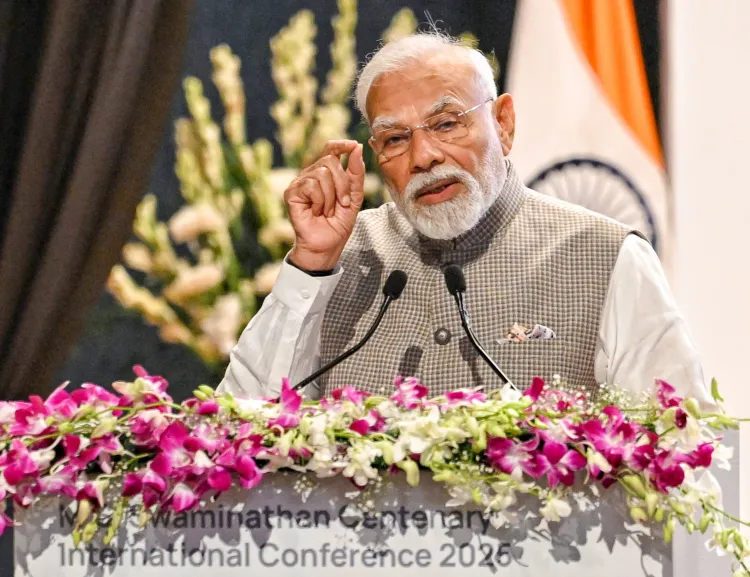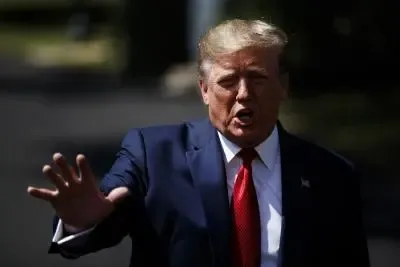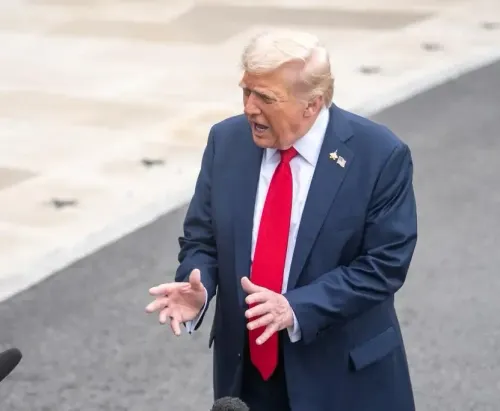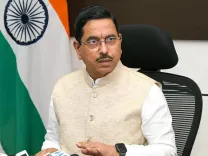Is India's Rejection of US Economic Coercion a Strong Message to Developing Nations?

Synopsis
Key Takeaways
- India's rejection of US tariffs signals a commitment to economic sovereignty.
- Protection of agriculture is vital for rural livelihoods.
- India is diversifying its trade partnerships in a multipolar world.
- Legal challenges at the WTO highlight India's stance against coercive tactics.
- The situation marks a shift in the India-US relationship.
Washington, Aug 9 (NationPress) India's firm stance against economic coercion from the US, which involved a hefty 50 percent tariff on crucial Indian exports, conveys a powerful message to other developing nations grappling with the hurdles of globalization and the weaponization of trade, according to a report published on Saturday.
This resolute position by India highlights its dedication to economic sovereignty, even if it means sacrificing short-term benefits.
The report from India Narrative elaborates, "India's protective measures go beyond mere economic caution; they serve as a strategy to ensure social stability, food security, employment, and rural welfare, all of which are vital for the nation's development."
As noted in the report, India's resistance stems from a desire to shield its agricultural sector, a lifeline for millions of rural families. Lowering tariffs on agricultural imports—such as fisheries, dairy products, and genetically modified crops—would adversely affect rural incomes, promote market monopolies, and threaten social harmony.
Additionally, the report points out that tariffs will also affect essential sectors like textiles, garments, gems, jewelry, and auto parts, all of which are heavily reliant on the US market.
Even with these challenges, India has chosen to diversify its trade relationships, adopting a more resilient approach in a multipolar world. The country has strengthened ties with the UK, the European Union, ASEAN, and the Global South coalitions, including BRICS and SCO, as detailed in the report.
Prime Minister Narendra Modi’s upcoming participation at the SCO Summit is poised to signify a pivotal shift in India's foreign policy.
The report states that India is not only responding with public declarations but is also contesting the US tariffs legally at the World Trade Organization (WTO). Concurrently, India remains committed to the principles of rule-based international trade, challenging what it perceives as unlawful and unilateral punitive actions by the US. This legal stance bolsters India's alignment with other nations advocating for equitable practices in global trade without succumbing to coercive methods.
The situation accelerates diversification, enhances legal assertiveness in global trade governance, and reinforces India’s commitment to control its own economic future. This approach transforms the India-US relationship into one characterized by complexity, contention, and a focus on sovereignty rather than unchecked market integration.
India’s steadfast response to US tariff pressures reflects a judicious analysis rooted in multifaceted economic realities rather than mere reactive anger or nationalism.
Through a balanced strategy that combines legal channels, diplomatic efforts, and domestic safeguards, India is fostering a global trade environment that is less reliant on Washington and more multipolar.









